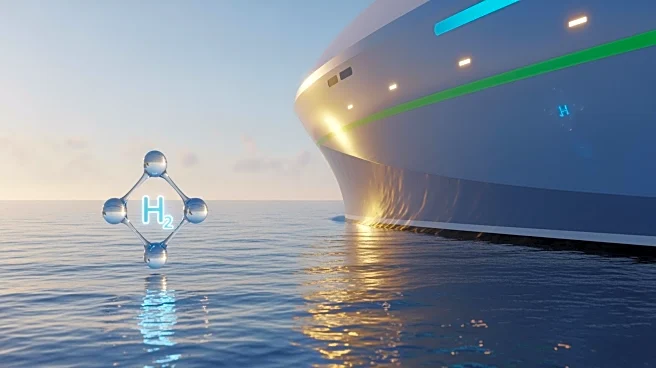What's Happening?
The maritime industry is witnessing significant advancements in hydrogen fuel technology, with several projects demonstrating its viability as a clean energy source. Notable examples include the Sea Change ferry in San Francisco, the MF Hydra in Norway,
and the Suiso Frontier in Japan. These vessels showcase hydrogen's potential to reduce emissions and offer sustainable maritime solutions. The Sea Change ferry, powered by Zero Emission Industries, operates commercially in the U.S., while the MF Hydra uses liquid hydrogen for regional transport in Norway. Kawasaki's Suiso Frontier demonstrates hydrogen's capability for international transport, carrying liquid hydrogen from Australia to Japan.
Why It's Important?
Hydrogen fuel represents a promising solution for maritime decarbonization, addressing the industry's need to reduce greenhouse gas emissions. The successful implementation of hydrogen-powered vessels highlights the potential for cleaner maritime operations, aligning with global sustainability goals. These projects illustrate the feasibility of hydrogen as a maritime fuel, paving the way for broader adoption and infrastructure development. The transition to hydrogen fuel could significantly impact the maritime industry, offering a sustainable alternative to traditional fossil fuels.
What's Next?
The maritime industry is likely to continue exploring hydrogen fuel as a viable option for decarbonization. Future developments may focus on expanding hydrogen infrastructure, improving storage and transport methods, and scaling hydrogen-powered vessels for commercial use. Collaboration among industry stakeholders will be crucial in overcoming technical and economic challenges, ensuring hydrogen's integration into global maritime operations.
Beyond the Headlines
The shift towards hydrogen fuel in the maritime industry reflects broader trends in clean energy adoption and environmental responsibility. It highlights the industry's commitment to innovation and sustainability, addressing regulatory pressures and public demand for cleaner operations. The development of hydrogen-powered vessels also underscores the importance of technological collaboration and investment in renewable energy solutions.
















